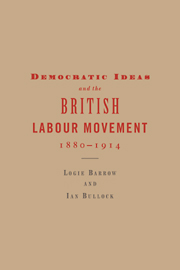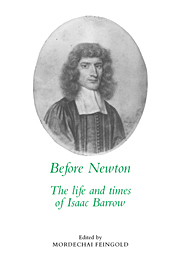Democratic Ideas and the British Labour Movement, 1880–1914
This is the first detailed survey of democratic ideas on the British Left in the period leading to 1914. Socialists of the late nineteenth century inherited assumptions about the priority of democracy from a long tradition of British Radicalism. However, the advent of the Fabians, who rejected this tradition as primitive, and of an ILP leadership more concerned to enter than reform parliament, meant that the movement was split between 'strong' and 'weak' views of democracy. By the eve of the First World War a consensus was emerging that might have formed the basis for a more realistic and more radical approach to democracy than has actually been pursued by the Labour Party and the Left during the twentieth century. Democratic Ideas and the British Labour Movement assesses an important debate in the history of socialist ideas and in the formation of the British Labour movement.
- The first detailed study of attitudes to democracy in the Labour movement from 1880 to 1914
- Has a relevence for the contemporary debate on democracy in the Labour movement
- Offers a fresh political perspective on socialist history
Reviews & endorsements
"From undergraduate level and beyond, readers new to the history of British labor or 20th century politics generally should still be advised to consult this book in its new edition." Malcom Chase, Labor History
"Democratic Ideas and the British Labour Movement...is an orginal and suggestive work that anyone interested in the history of British labor will want to read." Peter Weiler, Albion
"Democratic Ideas and the British Labour Movement which is based on careful and extensive research, is an original and suggestive work that anyone interested in the history British labor will want to read." Peter Weiler, Albion
"...tour de force. Woodhouse's book is a model regional study in that it shows both the distinctiveness of the local labor movement and its relationship to national organizations and to historical developments of the period. It should inspire others of the same ilk." Pamela M. Graves, Victorian Studies
Product details
February 2006Paperback
9780521024143
340 pages
229 × 154 × 20 mm
0.502kg
Available
Table of Contents
- Acknowledgements
- Introduction
- Part I:
- 1. The survival of Chartist assumptions
- 2. Democracy and socialism in the 1890s
- 3. Democracy and the industrial struggle
- Part II:
- 4. Conflicts in the ILP
- 5. The pressure to federate: the industrial struggle in the late 1890s
- 6. The rise and fall of the Clarion Federation
- Part III:
- 7. The early 1900s: a hinge period
- 8. Socialists and the state
- 9. Parliamentary socialism? Labour in parliament
- 10. Parliamentary democracy? 'Fred's obsession' and the path to the Bradford resolution
- 11. Background to sydicalism: the legacy of the NIGFLTU's failure
- 12. Avoiding the 'Servile State'. The impact of syndicalism and guild socialism
- 13. 1914: an emerging consensus on the eve of Armageddon
- 14. Conclusions
- Appendix. Federation for local Labour historians - and for national
- Index.




